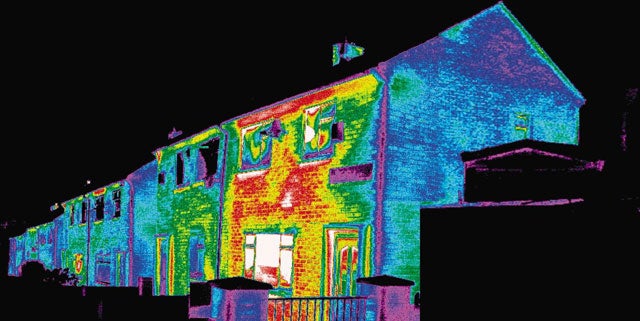Energy giants clash with Brown over costs of saving fuel

Gordon Brown's £1bn package to help people cut soaring fuel bills ran into immediate controversy yesterday after electricity companies refused to rule out passing on the cost of the scheme to customers.
Under the plans, power companies will be required to fund a big programme of energy efficiency measures such as loft and cavity wall insulation which the Government said could cut home energy bills by £300 a year. But suppliers pointedly refused to guarantee that the cost would not fall on the consumer.
Ministers faced further criticism because they could not say how many people would be helped this winter under the three-year programme.
David Porter, chief executive of the Association of Electricity Producers, warned that whenever costs were imposed on an industry "the bill to some extent always ends up with the customer". Mr Porter, whose members include E.ON, Centrica, EDF, Scottish and Southern Energy and RWE Npower, said: "In the end, somebody has got to pay for this." Electricity suppliers "will try to contain this because they have to, but it remains to be seen just how much of it ends up on the customer's bill in the longer run".
Mr Brown had said at his monthly press conference: "I do not expect the £910m that we raise to be passed on to the consumer by the energy companies. I think that's a very important point to make."
The Prime Minister announced "free" insulation for pensioners and families on state benefits and half-price installation for other householders. But people whose homes have already been insulated – and those in an estimated nine million homes not suitable for cavity wall insulation – may have to pay towards the cost of yesterday's measures if suppliers raise their charges.
People who use pre-payment meters will not face higher tariffs, and 600,000 low-income households will benefit from special discounts by the end of the year. In the event of "severe" conditions this winter, cold weather payments will increase from £8.50 to £25 a week for pensioners and benefit claimants. However, these kick in only in areas where the temperature remains below zero for seven days.
Many Labour MPs were disappointed that the Government had dropped its threat to impose a windfall tax on the profits of the energy firms to fund £100 "fuel vouchers" for those on low and middle incomes.
Some Labour backbenchers threatened to rebel when the legislation implementing the package is rushed through Parliament. Lindsay Hoyle, MP for Chorley, said they may propose an amendment calling for a windfall tax, backed by more than 100 Labour MPs. "I thought the idea was to do something quickly. These measures are more long term rather than suitable to help people this winter."
Mervyn Kohler, of Help the Aged, said: "This is a flimsy and failing package which does little to help older people. The Government must provide significant funding to meet the crisis facing many older people this winter. Energy providers must work that bit harder to guarantee vulnerable customers are paying for their fuel through the lowest-cost options and tariffs."
Will bills get higher?
British Gas
"There isn't a clear-cut answer. It is going to be another cost we will have to absorb while investing money in our energy infrastructure."
E.ON
"We can never rule it out [increasing bills] but it would be incredibly difficult to pass it on to our customers"
Scottish Power
Declined to answer, stating: "Today we're looking at our plans to deliver the project."
Join our commenting forum
Join thought-provoking conversations, follow other Independent readers and see their replies
Comments
Bookmark popover
Removed from bookmarks